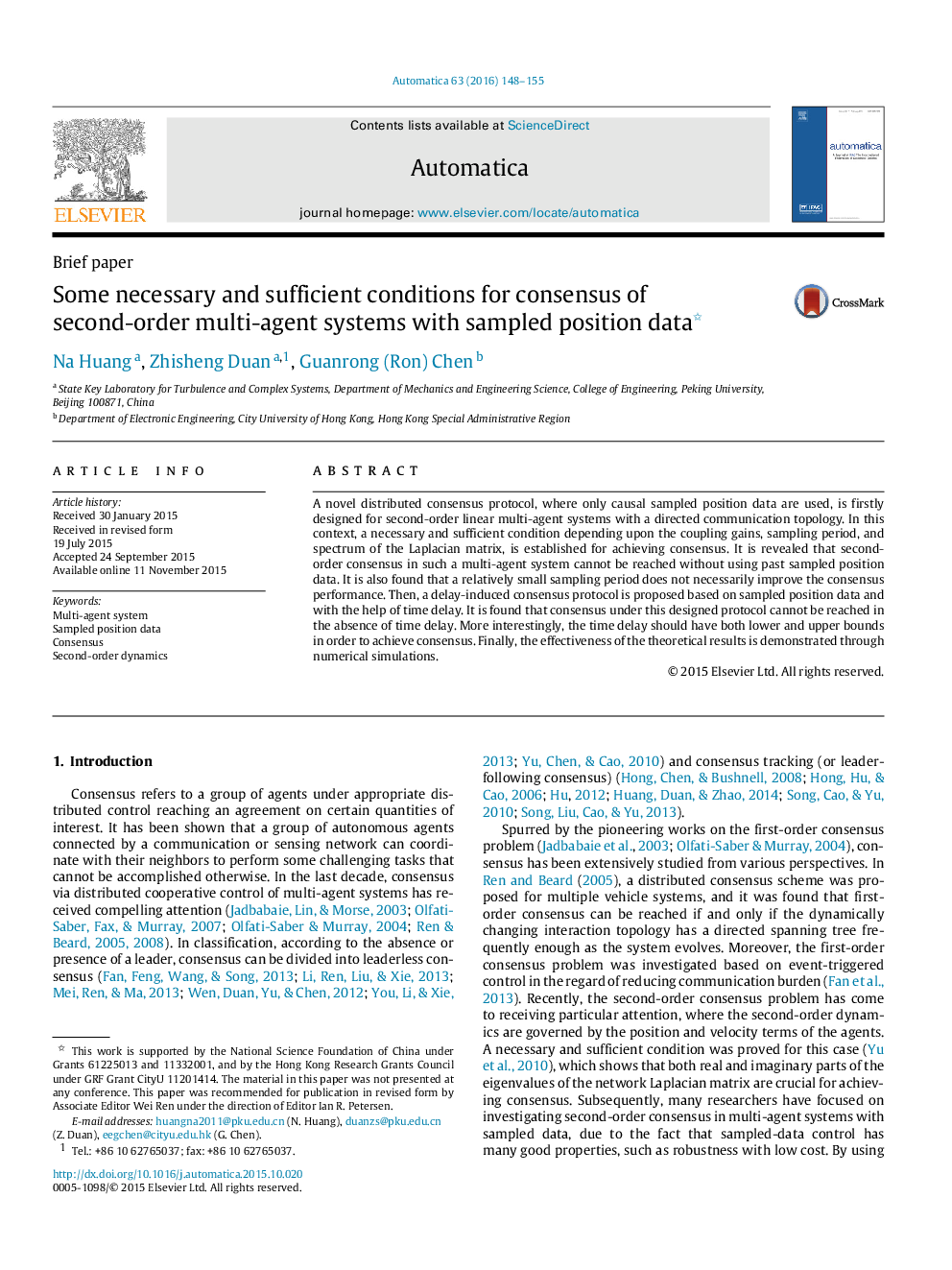| Article ID | Journal | Published Year | Pages | File Type |
|---|---|---|---|---|
| 7109612 | Automatica | 2016 | 8 Pages |
Abstract
A novel distributed consensus protocol, where only causal sampled position data are used, is firstly designed for second-order linear multi-agent systems with a directed communication topology. In this context, a necessary and sufficient condition depending upon the coupling gains, sampling period, and spectrum of the Laplacian matrix, is established for achieving consensus. It is revealed that second-order consensus in such a multi-agent system cannot be reached without using past sampled position data. It is also found that a relatively small sampling period does not necessarily improve the consensus performance. Then, a delay-induced consensus protocol is proposed based on sampled position data and with the help of time delay. It is found that consensus under this designed protocol cannot be reached in the absence of time delay. More interestingly, the time delay should have both lower and upper bounds in order to achieve consensus. Finally, the effectiveness of the theoretical results is demonstrated through numerical simulations.
Related Topics
Physical Sciences and Engineering
Engineering
Control and Systems Engineering
Authors
Na Huang, Zhisheng Duan, Guanrong (Ron) Chen,
